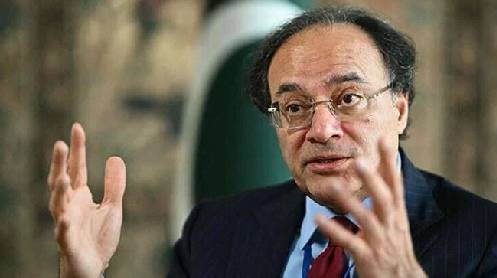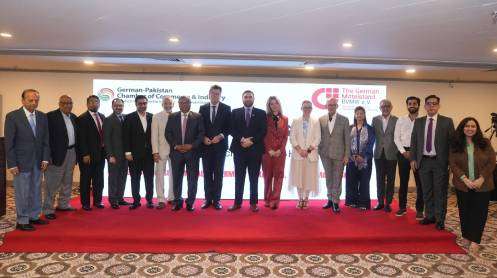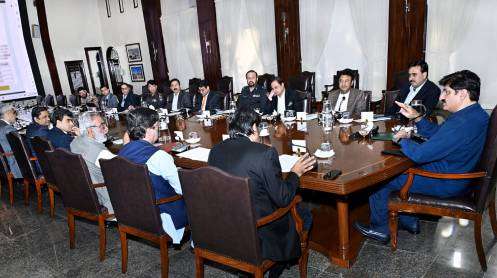PESHAWAR: Finance Minister Mohammad Aurangzeb on Thursday identified population growth and climate change as two of the most pressing challenges confronting Pakistan, warning that they directly impact long-term productivity, poverty reduction, and global competitiveness.
Speaking at the Pakistan Business Summit—hosted under the patronage of Khyber Pakhtunkhwa Governor Faisal Karim Kundi and co-organised by Nutshell Group and Al Baraka Bank with the Overseas Investors Chamber of Commerce and Industry (OICCI) as strategic partner—the minister stressed the government’s resolve to create an enabling environment for private-sector-led growth.
He underlined that the state’s role was to ensure macroeconomic stability, push structural reforms, and set the right conditions for investment. Aurangzeb highlighted recent economic gains, including a drop in financing costs following the policy rate cut, stronger foreign exchange reserves, and exchange rate stability—factors that have helped restore investor confidence and smooth dividend repatriation.
The minister noted remittances had surged to $38 billion last year and were expected to climb to $41–43bn in FY25. He added that Pakistan had successfully repaid $500 million in Eurobond obligations in September without market disruption and was on track to meet a $1.3bn repayment due in April 2026.
Aurangzeb reaffirmed the government’s commitment to comprehensive tax reforms, including separating tax policy from administration to enhance credibility. He further outlined priorities such as restructuring state-owned enterprises, advancing privatisation, rationalising energy tariffs, and pursuing an export-led growth strategy.
Citing recent investment engagements in Beijing, Riyadh, Washington, and New York, he pointed to the signing of 24 joint ventures with Chinese companies as evidence of renewed foreign investor confidence. He also underscored the need for effective use of the Rs4.3 trillion development budget, particularly in infrastructure, health, and education.
The minister concluded that Pakistan’s sustainable growth depends on competitiveness, private sector dynamism, and stronger federal-provincial coordination—adding that the government remained committed to steering the economy toward resilience and global standing.
Story by Manzoor Ali







